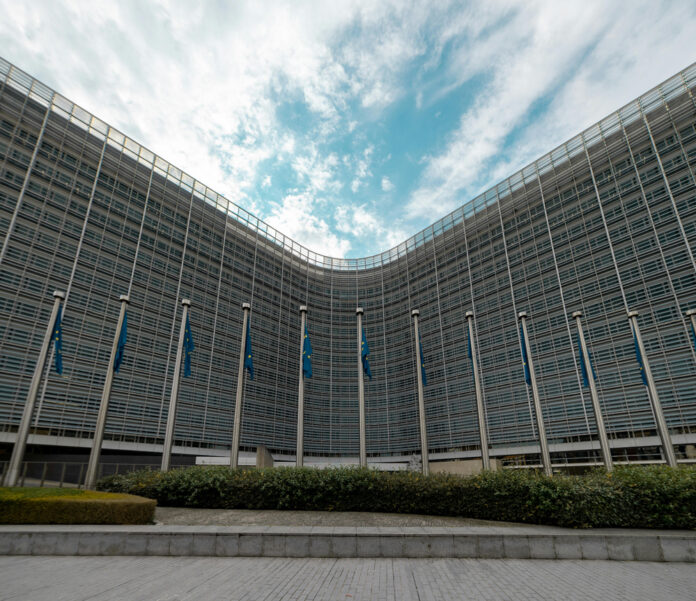For decades before the 2016 Brexit referendum, the European Union (EU) served as a convenient scapegoat for a wide array of British political, economic, and social grievances. From the tabloid press to the halls of Westminster, blaming “Brussels” became a national pastime, shaping public opinion and fueling the rise of Euroscepticism that ultimately led to the UK’s dramatic departure from the bloc.
**The Rise of Euroscepticism**
The United Kingdom joined the European Communities in 1973, but skepticism about European integration was present from the start. Over time, this skepticism deepened, particularly after the Maastricht Treaty in 1992, which transformed the European Community into the more integrated European Union[6]. The Conservative Party, once pro-European, became increasingly divided, with a vocal faction opposing deeper integration and warning against the creation of a “European super-state”[6].
Throughout the 1990s and 2000s, the British media-especially the tabloids-played a significant role in amplifying anti-EU sentiment. Stories about supposed “EU bans” on British products, from prawn cocktail crisps to bendy bananas, became staples of public discourse. Many of these stories were exaggerated or outright false, but they reinforced the narrative that the EU was meddling in British life and undermining national sovereignty[2].
**The EU as a Political Scapegoat**
Successive UK governments, regardless of party, often found it politically expedient to blame the EU for unpopular policies or domestic challenges. When regulations on everything from environmental standards to food labeling were introduced, politicians would frequently point to Brussels as the source, even if the UK had played a major role in shaping those rules[6].
This blame game extended beyond regulations. Economic woes, from sluggish growth to deindustrialization, were often attributed to EU membership, despite the complex global forces at play. The EU was also blamed for rising immigration, with politicians and campaigners claiming that free movement was the root cause of pressure on public services-even though only about half of UK migrants came from the EU[7].
**Austerity and the Politics of Blame**
The aftermath of the 2008 financial crisis saw the UK government impose austerity measures, cutting public spending and reshaping welfare programs. Rather than accepting responsibility for these difficult choices, many politicians and campaigners shifted the blame to the EU. The Vote Leave campaign, for example, argued that EU membership forced the UK to accept high levels of immigration and limited its ability to control its own borders, thus straining public services[7].
This narrative was politically effective, even though the evidence suggested that EU migrants were net contributors to the UK economy and public finances. By casting the EU as the villain, Brexit campaigners were able to deflect criticism from domestic policy decisions and rally support for leaving the bloc[7].
**The Brexit Referendum: Culmination of Years of Blame**
By the time of the 2016 referendum, blaming the EU had become deeply embedded in British political culture. The Leave campaign capitalized on this, portraying British citizens as victims of “scheming Eurocrats” and promising to “take back control” from Brussels[1]. The EU was depicted as an unaccountable bureaucracy imposing unwanted rules and siphoning off British money, despite the UK’s significant influence within EU institutions[1][6].
The Remain campaign struggled to counter this narrative, as years of political finger-pointing had eroded trust in the EU and made it difficult to present the benefits of membership. The result was a narrow but decisive vote to leave, with sovereignty, immigration, and economic control cited as key reasons by Leave voters[4][6].
**Aftermath: The Blame Game Continues**
Ironically, Brexit did not end the politics of blame. As the UK struggled to negotiate its withdrawal and forge new international relationships, politicians and media outlets continued to point fingers-sometimes at the EU, sometimes at each other[5]. The “Brexit blame game” became a fixture of public debate, with both sides seeking to avoid responsibility for the difficulties and disruptions that followed[5].
**Conclusion**
Before Brexit, blaming the EU was a convenient way for British politicians and media to deflect criticism and avoid difficult conversations about domestic policy choices. This culture of blame not only shaped public attitudes toward Europe but also set the stage for the UK’s eventual departure from the EU. The Brexit referendum was, in many ways, the culmination of decades of scapegoating-a reminder of how powerful and persistent political narratives can be in shaping a nation’s destiny[1][6][7].












